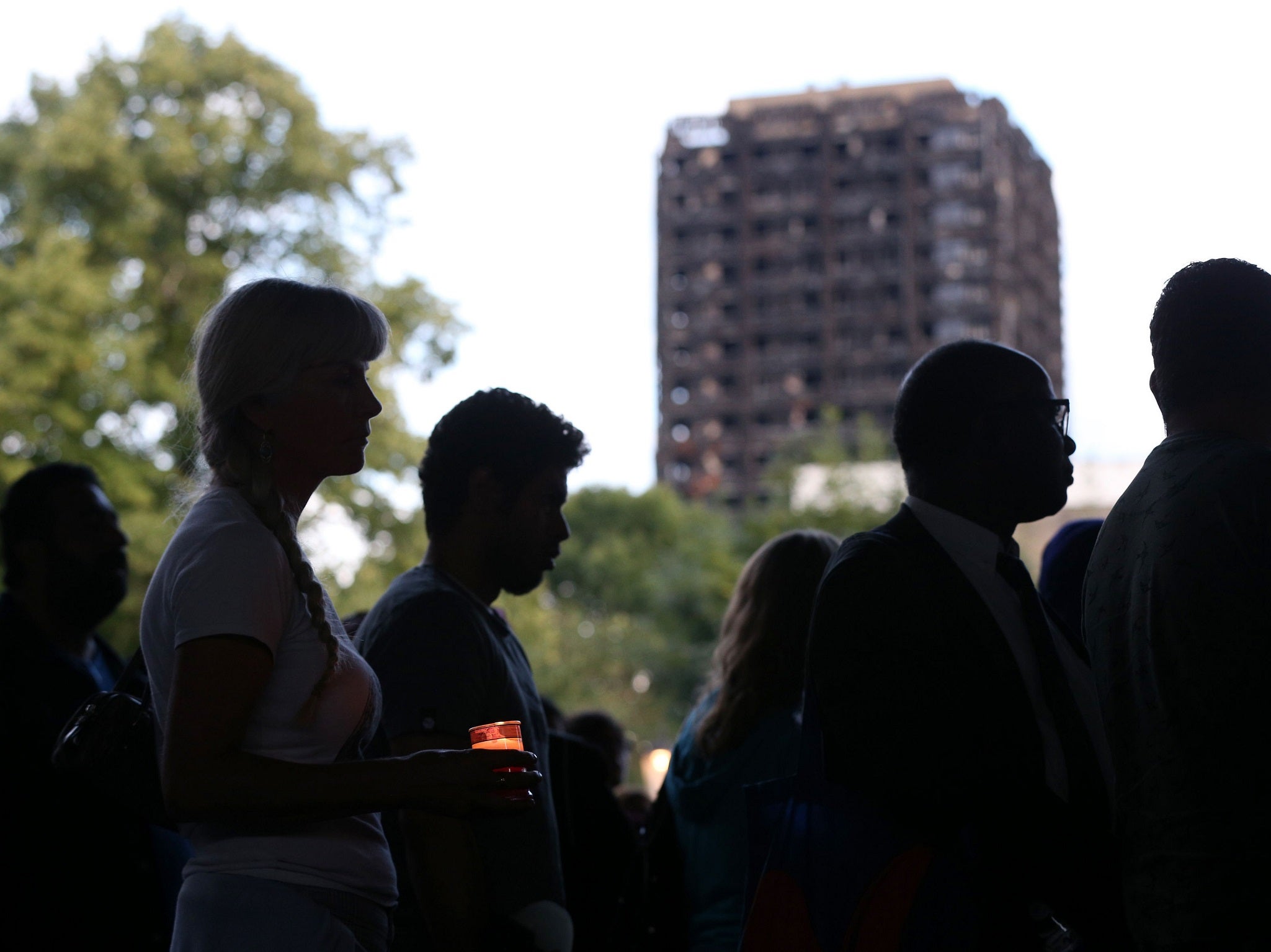Six times this Tory Government failed the Grenfell Tower residents
Theresa May has admitted that the initial response was not good enough – but the Government’s incompetence goes much deeper than that


Having spoken with survivors, residents and the community, it is clear that there have been systematic failures on the part of the local council and the national government in the two months since the tragedy. The first council meeting after the fire saw members of the affected community express their anger with the council.
Theresa May has admitted that the initial response was not good enough. It goes much deeper. This is the culmination of years of Tory cuts and neglect. Addressing the systematic failures requires a systematic overhaul in how the poorest and most vulnerable are treated by government. The limited terms of reference for the inquiry are a disappointment to residents and many others.
An opportunity to build broken trust has been missed with the risk that the Government, so heavily criticised for its response, is dodging its own responsibilities. These are six key ways the government has failed survivors and their families and loved ones of the bereaved. It is far from an exhaustive list.
Cuts from the top
The British Automatic Fire Sprinkler Association estimates that the cost of fitting Grenfell Tower with a sprinkler system would have been £200,000. Kensington and Chelsea Council’s usable reserves are £274m. The backdrop to this is the Conservatives cutting back on health and safety legislation. David Cameron spoke of the “health and safety monster” when he was Prime Minister. Boris Johnson responded to being held accountable for cuts to the London fire service while he was Mayor by saying: “Get stuffed.”
A National Audit Office report of 2015 found that since 2010, the government has reduced funding for fire and rescue authorities in England by between 26 per cent and 39 per cent. This has resulted in an estimated 17 per cent real-terms average reduction in spending power of stand-alone fire authorities from 2010-16. The Fire Brigades Union is warning of further cuts before 2020.
Warnings from the local community
The Grenfell Action Group repeatedly warned of fire hazards at the tower and in the local area, concluding that their pleas were falling on deaf ears, and predicted a catastrophe was inevitable.
Recommendations had been made to prevent fatal fires before the Grenfell catastrophe
Coroners made recommendations regarding retrofitting sprinklers in high rise residential buildings to prevent deaths, following fatal fires at Shirley Towers, Southampton (2010) and Lakanal House, Camberwell (2013). However, parliamentary under-secretary of state for communities and local government, Brandon Lewis, said in 2014: “We believe that it is the responsibility of the fire industry, rather than the Government, to market fire sprinkler systems effectively and to encourage their wider installation.
“It is clear that fire sprinklers work, and I am happy that the Government continue to emphasise that.”

Brandon Lewis also outlined a “commitment to be the first Government to reduce regulation,” stating that new regulations are subject to a “one in, two out rule”. The Government’s “cutting red tape” website highlights the scrapping of 2,400 regulations and £100m worth of savings to home builders and councils, by reducing hundreds of locally applied housing standards.
The majority of Grenfell residents are still without housing, despite a broken promise from the Prime Minister to be housed within three weeks
Progress on housing residents who have been given temporary accommodation in hotels has been disgracefully slow. After the fire, the vast majority of the Grenfell Tower residents are still in need of housing – despite Theresa May’s promise in June that “all will be offered rehousing within three weeks”. May referenced 164 suitable properties being checked and made ready for people to move into.

The new council leader Elizabeth Campbell announced 99 housing units secured for the residents at the July council meeting. However, Sajid Javid has recently written to residents saying that they will be permanently housed within 12 months. Three months on and 181 offers of accommodation have been made, 64 offers have been accepted and 29 households rehoused: a small fraction of those in need.
No proper amnesty for migrants and undocumented people
I have been vocal in calling for an amnesty for any undocumented migrants who were survivors in Grenfell Tower. The priority here must be reaching out and supporting those in need. Offering an amnesty will give undocumented people the confidence to come forward.
So far, a partial amnesty of one year has been offered, which must be applied for by the end of November: an unfair deadline given the trauma that people are facing. It would be a travesty if this partial amnesty resulted in detention and deportation in a year’s time.
Martin Moore-Bick, the chair of the Grenfell Tower Inquiry, has raised the importance of receiving evidence from former residents to Theresa May, and the need for others present in the building to come forward, but says some may be reluctant to do so “because of concerns about their long-term immigration status”. He urged the Government to “take all necessary steps to dispel those fears and encourage as many people as possible to come forward to assist the Inquiry”.
It is time for the government to step up and remove the threat of deportation from all the survivors, and allow their testimony to be heard.

No compromise on the scope and timing of the inquiry
In the Queen’s Speech, Theresa May called for a full public inquiry into the causes and to learn lessons following the Grenfell fire. She had promised that no stone would be left unturned. However, Sir Martin Moore-Bick has accepted that it will not include a broad examination of social housing policy, or the response from local or central government.
Matt Wrack, general secretary of the Fire Brigades Union says the risk is that the inquiry might “avoid probing deeper to examine the regime which allowed these deaths to happen, conveniently taking the spotlight off government ministers and any policies that were or weren’t in place that may have had an impact”.
The inquiry must meet the needs of the residents and survivors, covering all factors involved in the disaster, as well as their treatment prior to it and in the aftermath. Labour called for the inquiry to follow the model of the Lawrence Inquiry, that is, “an inquiry into matters arising from the Grenfell Tower fire”. This allowed for far reaching recommendations to identify and tackle institutional racism.
This inquiry must not be perceived as a further betrayal or breach of trust with the local community.
Diane Abbott is the Shadow Home Secretary and MP for Hackney North and Stoke Newington
Join our commenting forum
Join thought-provoking conversations, follow other Independent readers and see their replies
Comments
Bookmark popover
Removed from bookmarks